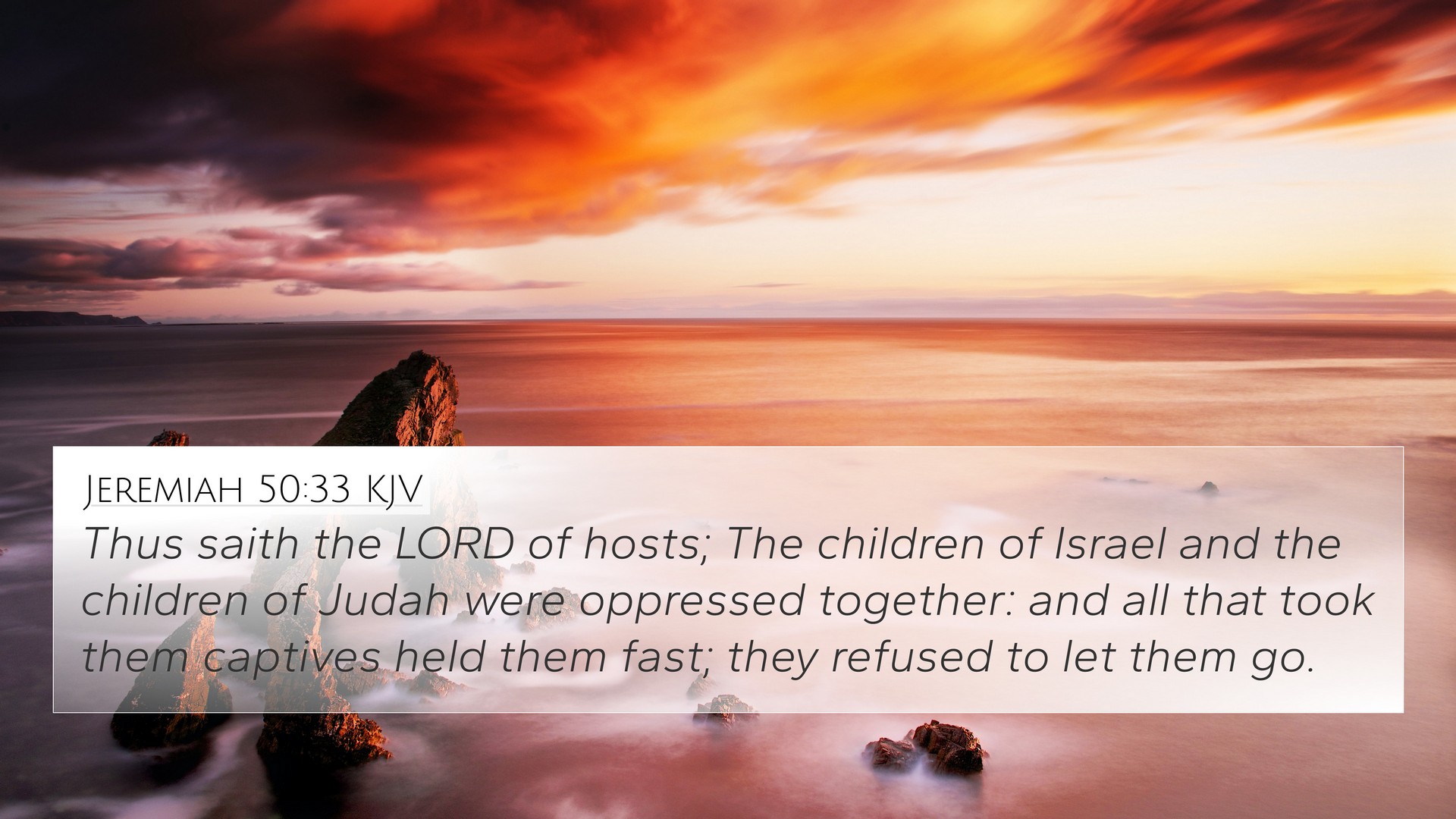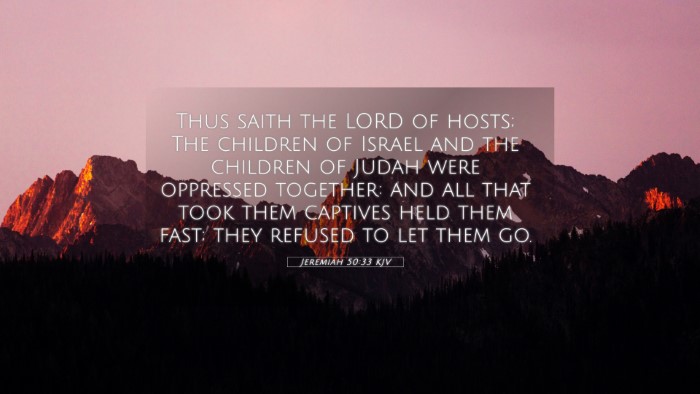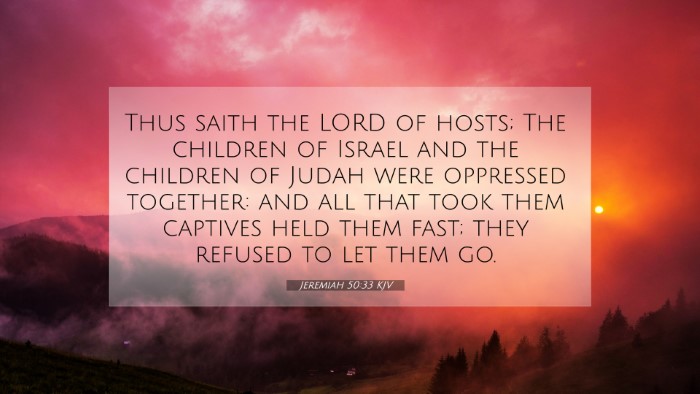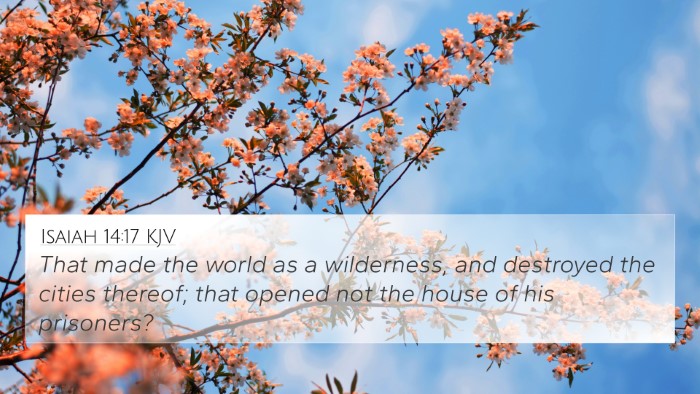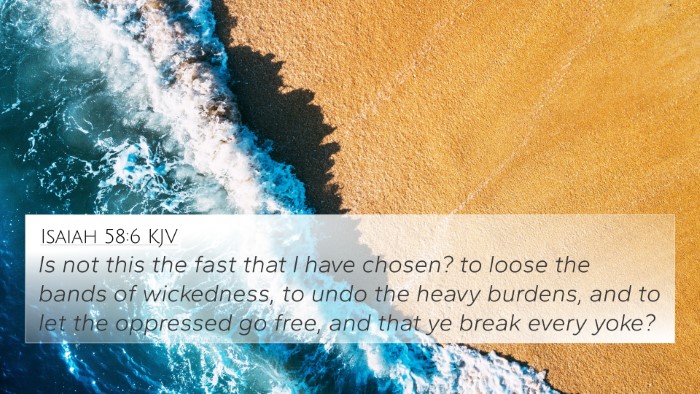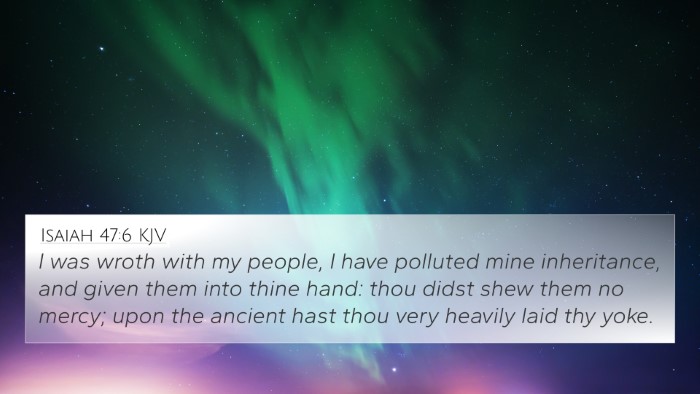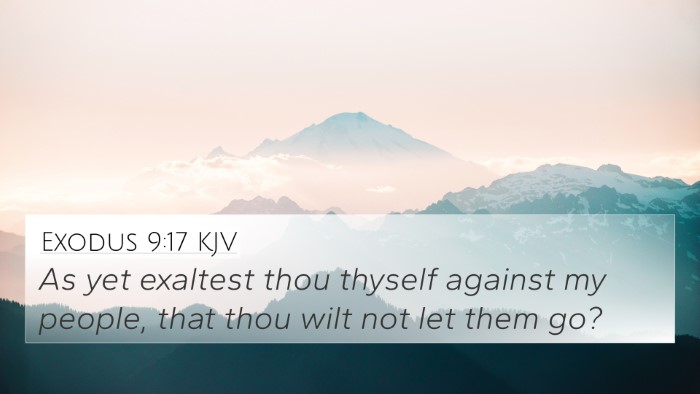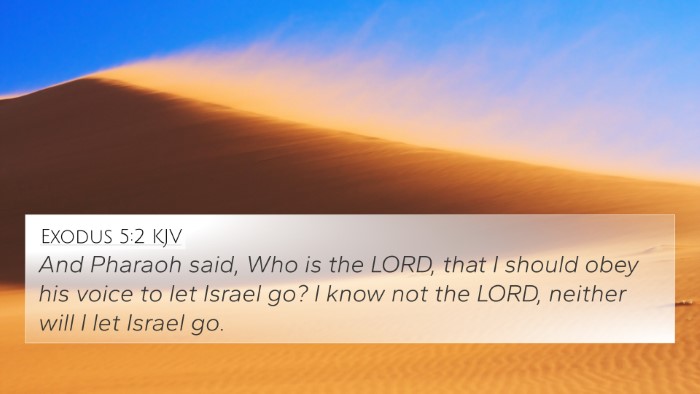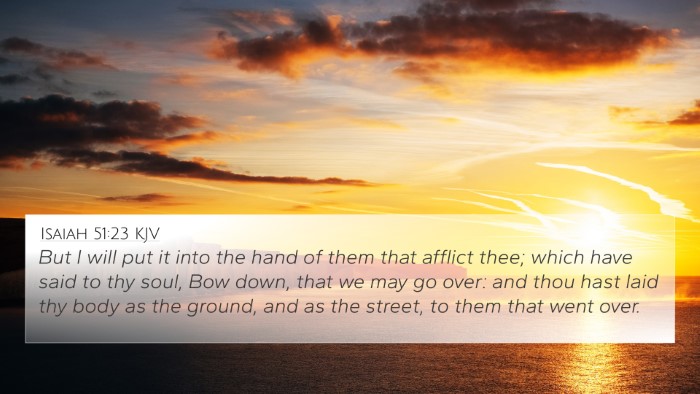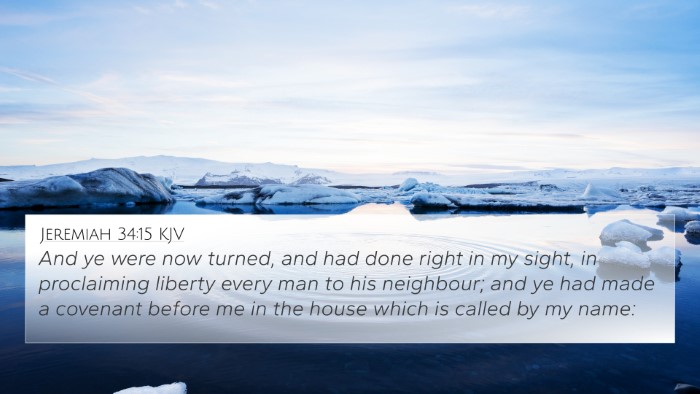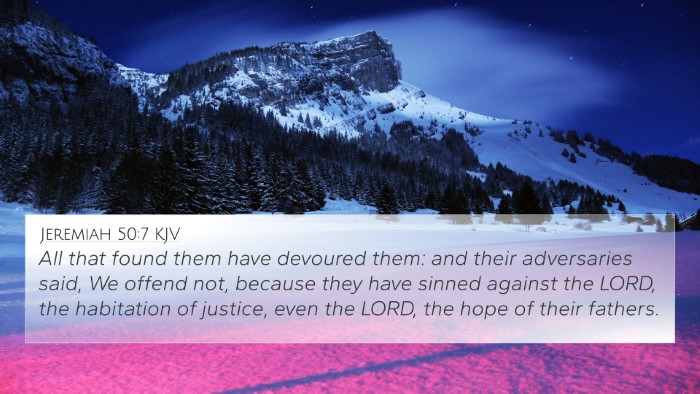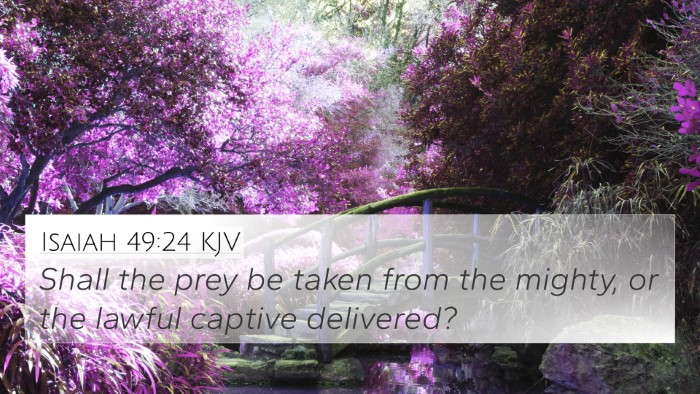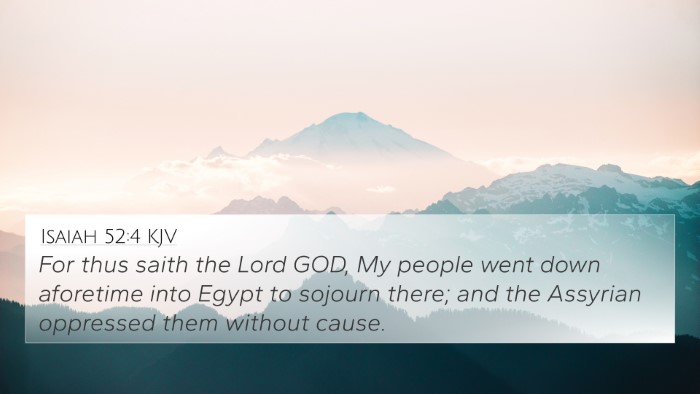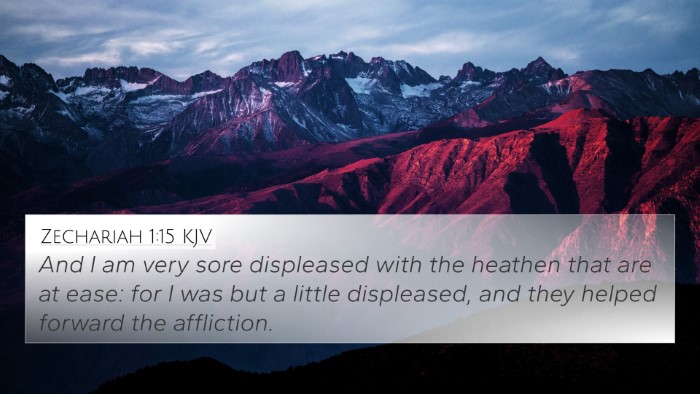Understanding Jeremiah 50:33
Verse Context: Jeremiah 50:33 states, "Thus saith the Lord of hosts; The children of Israel and the children of Judah were oppressed together: and all that took them captives held them fast; they refused to let them go." This verse highlights the oppression faced by the northern and southern kingdoms of Israel and Judah, emphasizing their unified suffering under Babylonian captivity.
Meaning of Jeremiah 50:33
In examining Jeremiah 50:33, various commentaries shed light on its depth and implications:
- Matthew Henry's Commentary: Henry discusses how the combined oppression of Israel and Judah signifies a collective heartbreak and a sense of shared fate. He points out that this verse serves as a reminder of their spiritual decline and the need for redemption.
- Albert Barnes' Notes: Barnes focuses on the historical context of the Babylonian exile, noting how both kingdoms suffered from oppression. He interprets this verse as God’s way of unifying the plight of His people, emphasizing the urgency of their call for deliverance.
- Adam Clarke's Commentary: Clarke elaborates on the retribution awaiting the oppressors. He sees this verse as prophetic, indicating that God will not allow the captivity of His people to go unpunished, thereby instilling hope for justice among the oppressed.
Thematic Connections in Scripture
This verse can be connected to several significant themes in the Bible. Understanding these themes helps illustrate God’s continuous narrative throughout the Scriptures:
- Oppression and Deliverance: Jeremiah 30:8 highlights God’s promise of liberation from bondage, which reflects the collective oppression portrayed in Jeremiah 50:33.
- Covenant Faithfulness: Deuteronomy 30:3 reminds us of God’s faithfulness to His covenant, as He restores His people even when they face oppression.
- Unity among God's People: Ezekiel 37:22 speaks of the future unification of Israel and Judah, showing God’s intention for His people to be one despite their historical divisions.
- National Repentance: 2 Chronicles 7:14 calls for humility and prayer, echoing the necessity for the oppressed to seek God’s help to overcome their captivity.
- The Eternal Promises of God: Isaiah 41:10 encourages believers that God is with them in times of distress, including the trials symbolized in Jeremiah 50:33.
- Hope Amidst Suffering: Lamentations 3:31-32 reminds us that God does not abandon His people even in their darkest hours of suffering.
- Divine Justice: Nahum 1:2 warns about the vengeance of the Lord against oppressors, aligning with the theme present in Jeremiah 50:33.
Cross-Referencing Analysis
Cross-referencing Biblical texts enhances our understanding, as discussed thoroughly in the commentaries:
- God’s dual promise of justice and restoration is mirrored throughout the prophetic books, reinforcing the pattern seen in Jeremiah.
- This verse can also be linked to themes of restoration in New Testament texts like Romans 8:28, where God works through struggles for a greater good.
Applications for Today
In light of modern struggles, Jeremiah 50:33 serves several valuable applications:
- Understanding Collective Suffering: The verse encourages empathy and collective action against injustice in our communities.
- Faith in God’s Deliverance: It reminds believers to trust in God’s plan during times of oppression and to seek unity among themselves.
- Urgency for Repentance: The historical context calls the modern church to reflect on spiritual integrity and the need for renewal.
Conclusion
Jeremiah 50:33 opens a dialogue about the justice of God, the suffering of His people, and His eternal promises to restore and unify. Through cross-referencing and thematic analysis, believers are encouraged to explore these connections further, deepening their understanding of Scripture and strengthening their faith.
